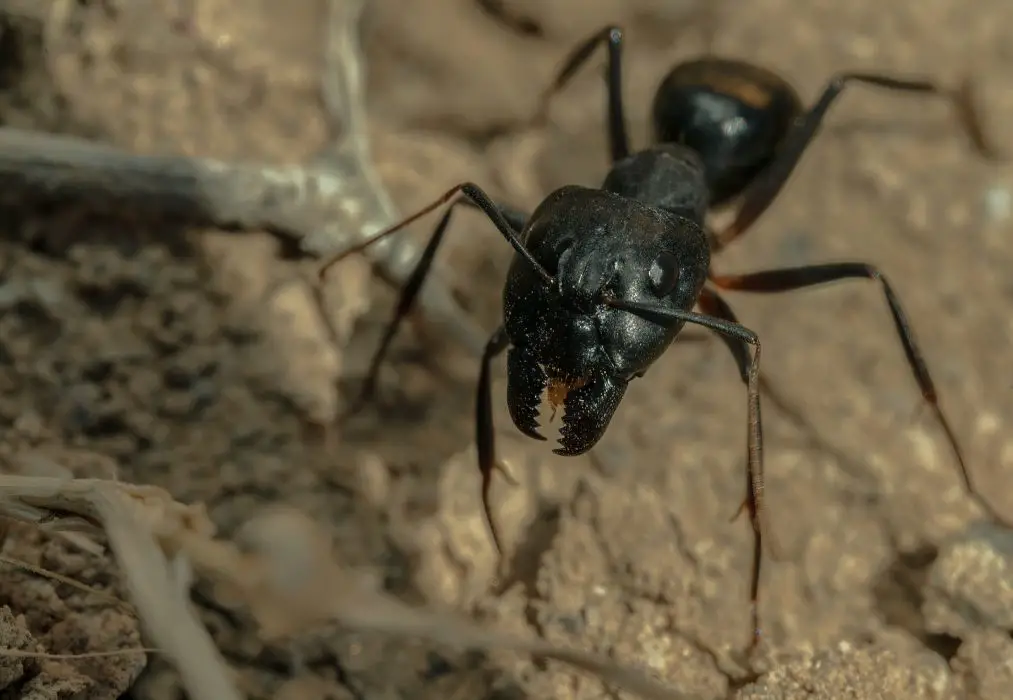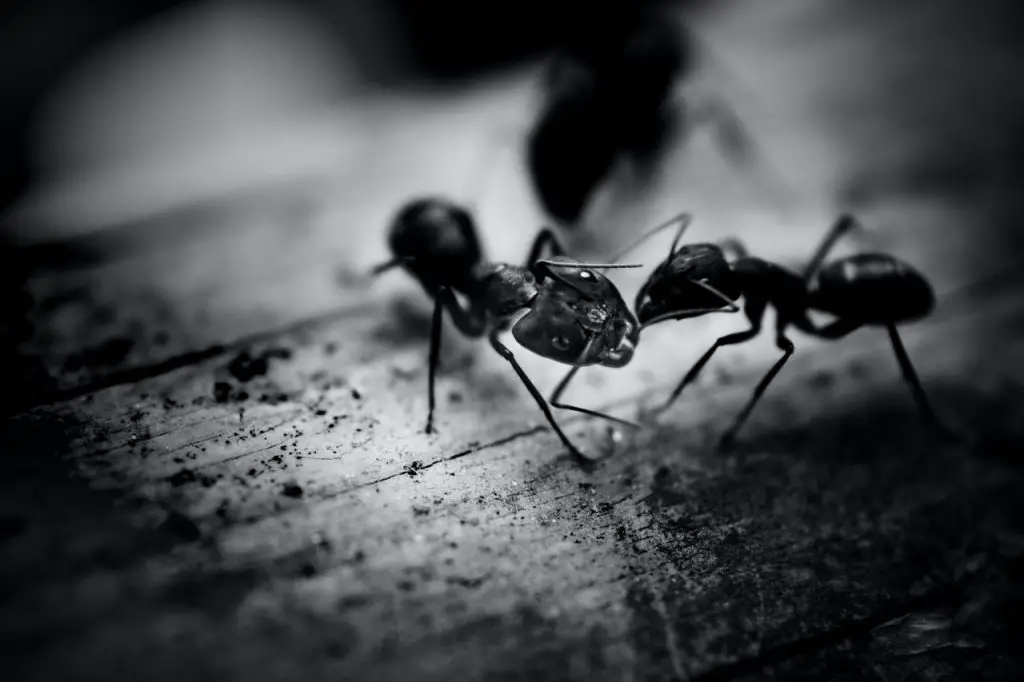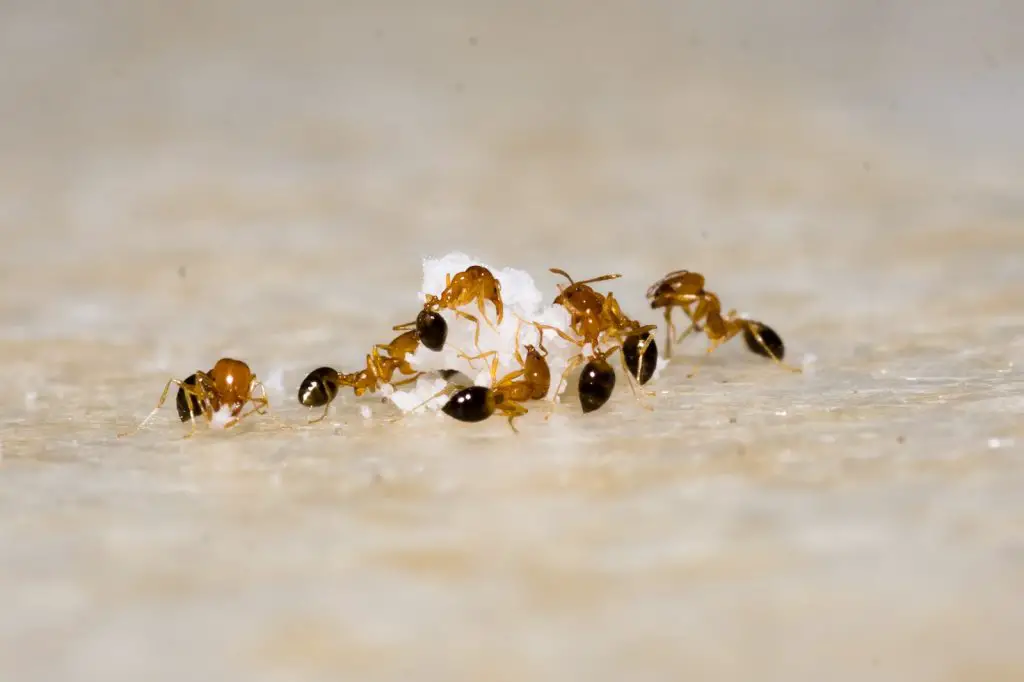The simple answer to this question is that it varies from person to person, Yes some people can smell the odor of ants and some people cant.
Ants are a fascinating species that inhabit the world right beneath us, and emit a distinct odor. There is a genetic variation among people around the world that divides them into two categories:
1: Those who have the ability to detect the odor of ants and those who do not.
2: While the majority of individuals do not possess this trait, there are some who are able to perceive the scent of ants.
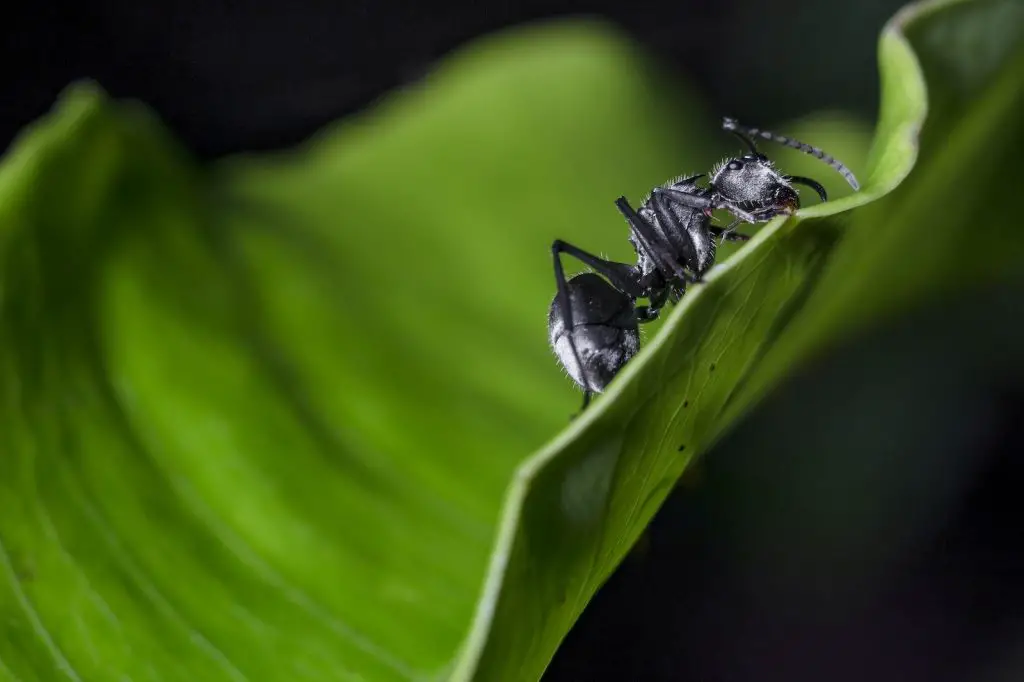
Why Can Some People Smell Ants
Some people can smell ants because they are able to detect the specific chemical compounds, such as formic acid and oleic acid, that ants release as part of their communication and defense mechanisms.
The ability to smell ants may be genetically determined, and individuals who lack the specific genes responsible for sensing these scents may be unable to perceive them.
However, scientists widely believe that genetics is linked to this ability. Individuals who lack the specific gene responsible for sensing these scents may be unable to perceive them.
People may overlook ant scents due to their daily routines and inattention.
Perhaps taking the time to observe these industrious creatures could help determine if one has the ability to detect their unique scent signals.
The science of ant scents
The science of ant scents is the study of the chemical compounds emitted by ants, which are used for communication, foraging, defense, and other behaviors.
By understanding the specific scents produced by different ant species, researchers can gain insight into their behavior, ecology, and evolutionary history.
This field of study has practical applications, such as developing more effective pest control methods or using ant pheromones to monitor populations.
Carpenter ants emit formic acid, similar to vinegar, when they feel threatened as a defense mechanism.
Some individuals may be more sensitive to the scent of formic acid, which may indicate a genetic determination, similar to the situation with asparagus.
Additionally, citronella ants are named for their citrusy scent, while the crushed bodies of trap-jaw ants release a chocolatey odour.
Why do ants smell when you squish them
When you crush an ant individually or eliminate an entire trail of them, a specific odour is released.
This scent has been likened to that of rotting coconut or spilled ink, but it plays a crucial role in the organisation of ant communities, with colonies consisting of thousands of workers.
These insects rely on the scent released during such events to defend themselves and communicate important information amongst each other.
What do ants smell like
Learning about the various scents that ants can produce may surprise those who have never smelled them before.
While the combination of blue cheese and bacon on a fresh salad might make your mouth water, the same aroma coming from an ant is far from appetising.
The odorous house ant emits a pheromone that smells exactly like blue cheese.
This same chemical is also produced by Penicillium mould. Whether you love or hate the pungent smell of blue cheese, it’s hard to miss.
Carpenter ants, on the other hand, emit a sour, vinegar-like odour when they feel threatened and aren’t sure what’s happening.
This scent comes from the formic acid they spray when defending themselves.
If you’re familiar with the scent of citronella, you can probably guess what citronella ants smell like.
Their scent is similar to the citrusy aroma often used in cleaning products. Ants emit an olive oil scent, while trap-jaw ants release a chocolatey aroma when someone squishes them.
How Does a Dead Ant Smell
When an ant dies of natural causes, it emits oleic acid, which alerts other ants to its demise.
These ants then transport the deceased ant to a designated pile of dead ants, which serves as a signal of danger and death to the rest of the colony.
Whether killed by a predator or perished naturally, the colony considers an ant a threat to its safety and must dispose of it properly.
The ants accomplish this by carrying the corpse to the midden, which is essentially a pile of dead ants’ bodies.
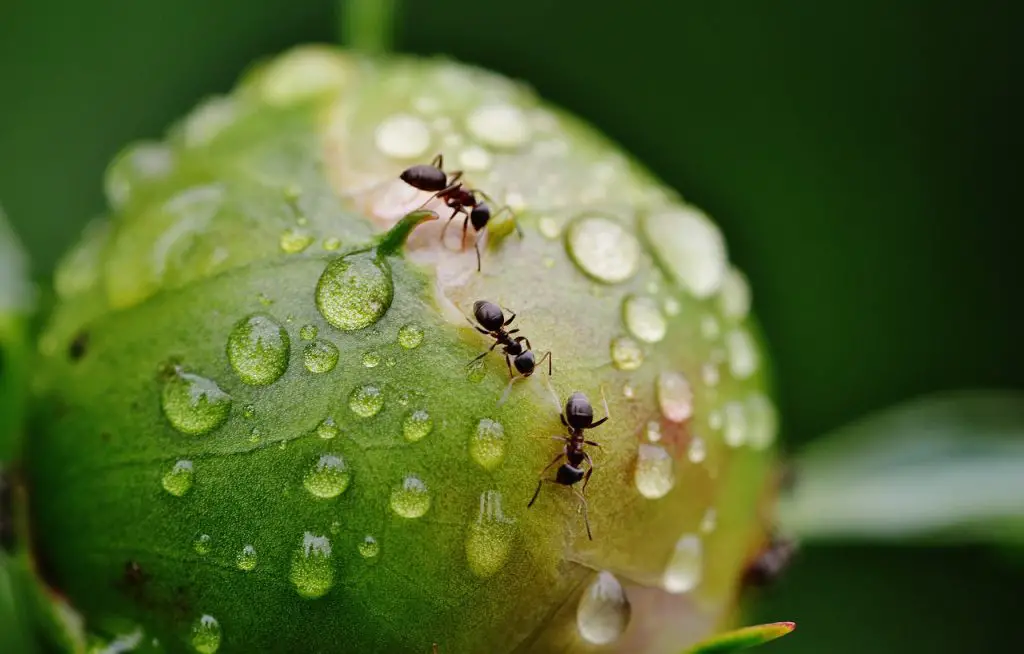
Can Ants Make Your House Smell
Squashing too many ants can result in an unpleasant odour as they release a stinky smell when they die.
This means that it’s important to be cautious when eliminating an ant infestation as the smell of dead ants can linger in your home.
In addition to the odour from dead ants, using chemical sprays and pesticides can also contribute to a foul smell in your house.
A better alternative is to use natural remedies to keep ants at bay.
For instance, you can place citrus fruit peels and juice around your home, as ants dislike the scent of citrus and will avoid it.
This will not only help keep your home smelling pleasant but also keep ants away.
Why is detecting ant scents important
Being able to detect ant scents can be important for several reasons.
- First, it can help identify the presence of ants in the environment.
This is particularly important in situations where ants are not visible, such as in underground nests or inside walls.
- Second, different ant scents can provide information about the type of ant present and its behaviour.
Formic acid smell indicates threat, while oleic acid suggests dead ants.
- Third, being able to detect ant scents can be important for pest control.
Identifying ant scents can aid in developing better ways to repel or eliminate them.
- Finally, the ability to detect ant scents may also have cultural or social significance.
Some cultures use ants as a food source, and detecting the existence of edible ants can be crucial for survival.
Conclusion
Ants are fascinating creatures that emit unique and distinct scents that can vary from species to species.
While some people are able to detect these scents due to genetic variations, others may not be aware of them or simply overlook them.
The science of ant scents is still being studied, but it is clear that these scents play a crucial role in ant behaviour and communication within their colonies.
Additionally, being able to detect ant scents can be important for identifying the presence of ants, understanding their behavior, and developing effective pest control methods.
Studying ants and their scents could deepen our appreciation for these insects and their crucial environmental role.

